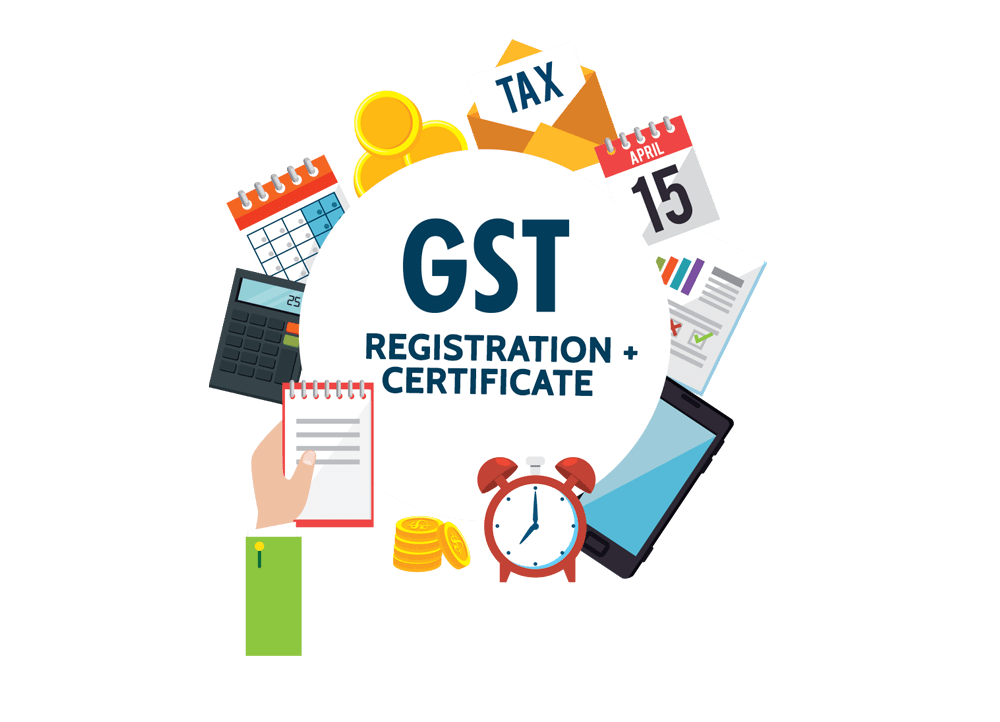Avoid Common Mistakes in Singapore GST Registration for Your Business
Avoid Common Mistakes in Singapore GST Registration for Your Business
Blog Article
Browsing the Complexities of GST Enrollment: Expert Tips and Best Practices for Smoother Compliance
From analyzing enrollment demands to harnessing technical tools for structured processes, the journey towards smoother GST conformity is nuanced and multifaceted. Remain tuned to reveal important techniques and insights that can assist businesses guide with the complexities of GST enrollment with skill and self-confidence.
Comprehending GST Enrollment Demands

Along with turn over limits, businesses engaging in interstate sales or supplying taxed services may additionally be needed to register for GST, even if their turn over is listed below the prescribed limitation (Singapore GST Registration). Recognizing these limits and needs is vital to prevent fines and make certain smooth procedures within the lawful framework
Additionally, businesses should collect and prepare the needed paperwork, such as proof of identity, address, company incorporation, and savings account information, prior to starting the GST enrollment procedure. Falling short to supply precise info or satisfy the enrollment deadlines can cause penalties or other legal effects. Consequently, organizations should remain educated concerning the certain GST registration needs relevant to their operations to keep conformity and stay clear of prospective concerns.
Organizing Essential Documents
Businesses getting started on the GST registration procedure must diligently compile and arrange the essential documentation needed for entry. The essential files normally required for GST enrollment include proof of service registration or address, consolidation and identity evidence of the company owners or partners, checking account details, evidence of major area of company, and permission types. Making sure that these documents are readily available and organized can streamline the enrollment process and avoid hold-ups or denials.
To successfully arrange essential documentation, organizations must create a centralized system for storing and categorizing the required documentation (Singapore GST Registration). Making use of digital storage space options can aid keep very easy access and make sure that files are safely kept. Furthermore, establishing a checklist of all essential papers can function as a valuable device to track what has been collected and what is still required for submission

Leveraging Technology for Efficiency
Enhancing operational effectiveness through technological integration is extremely important for modern-day businesses navigating the complexities of GST registration. One of the key ways technology can assist in GST registration is through the usage of automated software program services.
Furthermore, technology can promote seamless interaction with tax authorities. On the internet websites and interaction tools enable services to submit files, settle questions, and receive updates in a more effective way. This not just quickens the enrollment process however additionally aids in keeping transparent and trusted communication with the pertinent authorities.
Furthermore, cloud-based storage options give a protected system for companies to store and access their economic data, ensuring conformity with GST record-keeping requirements. By streamlining data storage space and automating processes, companies can boost their general performance and precision in GST enrollment treatments.
Proactive Compliance Monitoring

To make certain efficient proactive conformity tracking, organizations must establish robust interior controls, conduct routine audits, and take advantage of automation tools for real-time tracking of GST purchases. Regular training sessions for staff members on GST compliance needs can likewise help in developing a culture of compliance within the organization. In addition, engaging with tax consultants or specialists can provide beneficial understandings and support on navigating complex GST laws.
Engaging With Specialist Specialists
Engaging skilled tax experts can dramatically bolster a company's understanding and conformity with complex GST policies. Expert consultants bring a wealth of knowledge and experience to the table, aiding organizations navigate the intricacies of GST enrollment easily. By leveraging their knowledge, companies can make certain precise filings, decrease the threat of mistakes, and remain current with the most up to date governing adjustments.
When engaging my explanation with professional specialists, it is vital to select professionals with a strong track document in GST compliance (Singapore GST Registration). Try to find professionals who have a deep understanding of the pertinent laws and laws, along with experience dealing with organizations in your industry. Effective communication is crucial in this collaboration, so see to it to plainly specify your expectations and establish normal touchpoints to go over progression and attend to any kind of problems
Moreover, professional professionals can supply valuable insights and recommendations on optimizing your tax obligation strategy, recognizing prospective cost-saving possibilities, and simplifying your conformity procedures. On the whole, purchasing professional consultancy solutions can go a lengthy way in making sure smoother GST conformity and preventing pricey errors.
Conclusion
In verdict, browsing the complexities of GST enrollment requires a thorough understanding of the demands, organization of essential documents, leveraging modern technology for effectiveness, proactive conformity surveillance, and interaction with professional consultants. By complying with these best techniques, businesses can ensure smoother compliance with GST policies and prevent possible fines or penalties. It is essential to stay notified, aggressive, and diligent in handling GST registration to preserve compliance and maintain economic stability.
To make certain conformity with tax obligation guidelines, organizations have to thoroughly understand the elaborate requirements for GST enrollment. Item and Services Tax (GST) is a value-added tax imposed on most goods and solutions in a country, making it essential for businesses to sign up for GST to stay clear of lawful effects.Moreover, companies should gather and prepare the needed documents, such as evidence of identification, address, business consolidation, site link and financial institution account details, prior to starting the GST enrollment procedure. Organizations need to remain informed regarding the details GST registration needs appropriate to their procedures to maintain compliance and prevent possible problems.
The key papers commonly needed for GST enrollment include evidence of company registration or address, identification and incorporation proofs of the service owners or partners, financial institution account details, proof of principal location of company, and permission types.
Report this page